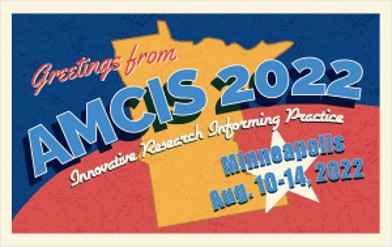The nature of work and organizations is changing with the deeper embedding of modern new digital technologies in the workplace. This is transforming work but also changing and challenging core aspects of organizations such as employee connectedness, engagement, and how meaning and identity are formed and reproduced in day-to-day work. These deep effects contribute to the emergence of new forms of organizing based on open platforms of communication, collaboration, and exchanges for example the growing use of crowd-based work platforms where it becomes less relevant to which organizations individuals belong. Digital workplace platforms and ecosystems can thus support more dynamic and fluid work arrangements within and across organizations, and allow for more flexibility in terms of when, where, and how we work. The potential to leverage the opportunities from this new landscape of work in organizations to improve the lives of workers is enormous but also, there is great potential to create a better society and more sustainable and resilient organizations. Yet, this changing nature of work also raises many concerns and unintended consequences (e.g., digital fatigue, impact on well-being, meaningless work with algorithmic management, and the corrosion of privacy). This is the theme for this workshop where we would like to discuss new and current research that improves or challenges our understanding of these themes.
Track Chair:
Jungwoo Lee, Yonsei University, jlee@yonsei.ac.kr
Schedule
| 2022 |
| Wednesday, August 10th |
|
12:00 AM
|
Employee Creativity and Information Technology in the Context of COVID-19 Pandemic: Effect of Large-Scale Unexpected Event on Organizational Innovation
Derrick Ganye, University of North Carolina at Greensboro
A. F. Salam, University of North Carolina at Greensboro
12:00 AM
|
| 12:00 AM |
Forced Adoption: A new Phenomenon of Information Systems Adoption
Florian Schwade, University of Koblenz
Alexander Richter, Victoria University of Wellington
12:00 AM
|
| 12:00 AM |
Multi-organizational Embeddedness: Impacts on Developers’ Turnover and Career Mobility
Liwei Chen, University of Cincinnati
Sherae Daniel, University of Cincinnati
Jaime Windeler, University of Cincinnati
12:00 AM
|
| 12:00 AM |
Online discourse on remote work challenges during the pandemic – trace data study and future directions
Aleksandre Asatiani, University of Gothenburg
Vasili Mankevich, University of Gothenburg
12:00 AM
|
| 12:00 AM |
Online Teaching in the Times of COVID-19 and the Change in Work Time Distribution of Faculty Members
Jakub Swacha, University of Szczecin
12:00 AM
|
| 12:00 AM |
Technostress Revisited at Work-From-Home: The Impact of Technostress Creators on the Perception of Eustress Moderated by Work-Home-Conflict and Job Satisfaction
Julia Theresia Zielonka, Johannes Gutenberg-University
Rebecca Maria Heigl, Johannes Gutenberg-University
Franz Rothlauf, Johannes Gutenberg-University
12:00 AM
|
| 12:00 AM |
The New Normal of Virtual Team Cohesion – a Qualitative Study to Investigate the Impact of COVID-19
Anna Zeuge, Chair of Information Systems
Andreas Weigel, Chair of Information Systems
Cindy Schaefer, Chair of Information Systems
Bjoern Niehaves, Chair of Information Systems
12:00 AM
|
| 12:00 AM |
Two Faces of Radical Digitalization in Education: An institutional logics Perspective
Sara Willermark, School of business, economics & IT
Karin Högberg, University West
12:00 AM
|


